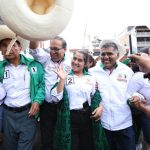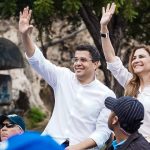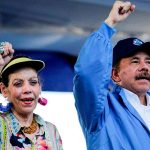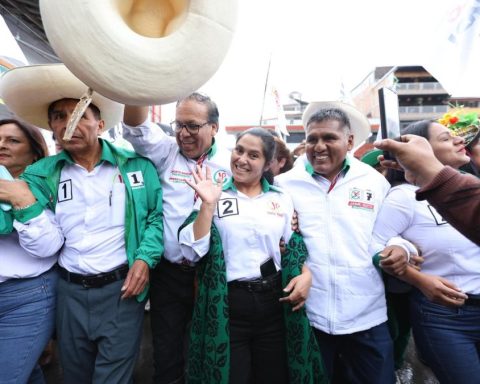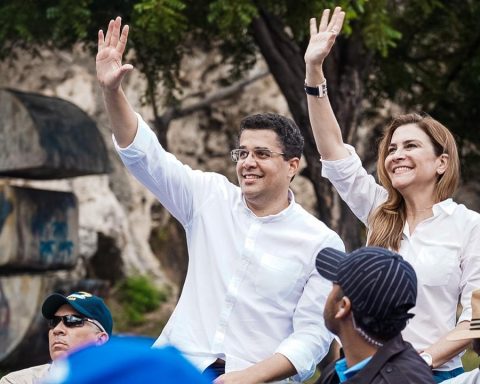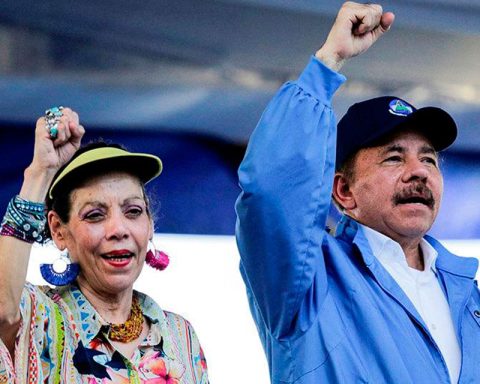The Nicaraguan sociopolitical crisis has been present in the Brazilian electoral debate; however, it has not carried any weight among voters, according to an analysis by Nicaraguan Humberto Meza, a doctor in Political Science and a researcher at the Federal University of Rio de Janeiro, Brazil.
President Jair Bolsonaro invited priests and nuns to take refuge in Brazil who are persecuted by the regime of Daniel Ortega, during his speech before the UN General Assembly, on September 20.
“Bolsonaro deals with the issue of Nicaragua as a manipulation in order to apparently affect the PT, and the PT candidate, Lula, in this process. He wanted to give the electorate the impression that Lula is a close friend of dictators, but judging by the results, this issue did not catch on with the electorate,” Meza explained in an interview with the program. Tonight.
In the first round of the Brazilian presidential elections, last Sunday, October 2, former president Luiz Inacio Lula da Silva won with 48.4% of the votes to Bolsonaro who was second with 43.2%. The polls prior to the first round underestimated the strength of the current president, giving a 14-point lead to the left-wing candidate.
Meza sees “very complicated an alignment (of Lula) with Ortega, if we consider the positions that both Lula and the PT have taken in the last year. Although he does not openly condemn Nicaragua, he did stand completely against the lack of alternation in powerhe said: “a leader who considers himself irreplaceable is transforming himself into a dictator”.
In an interview in mid-2021, Lula commented: “If I could give Daniel Ortega some advice, I would give it to him and to any other president. Don’t abandon democracy. Don’t stop defending freedom of the press, of communication, of expression, because that is what strengthens democracy.”
Lula and Bolsonaro will face each other for the Brazilian presidency in a ballot on October 30. The leader of the Workers’ Party (PT) is the favorite in the polls.
The results of the election in Brazil were correct in the vote for Lula but were very different in the projections of the polls in terms of the percentage obtained by the current president Jair Bolsonaro, why?
There are many reasons that can explain this change from what was expected of the Bolsonaro vote. It is likely that the panorama that was evident on Saturday, where there was high expectation for an election of Lula in the first round, could have generated resentment.
Some scares in voters of Simone Tebet and Ciro Gomes (who came in third and fourth place, respectively) who are not voters of the extreme right or left. They tried to manage a third way that did not work and it is likely that at the last minute those voters have abandoned their candidates and have decided to go to Bolsonaro.
There are other reasons that explain the difficulties that the polls did not capture that hidden vote, which is called “the shameful vote” on Bolsonaro. There are areas, in large Brazilian metropolises, that are controlled by parallel powers, which somehow threaten and coerce. There is pressure on popular voters in the favelas, speaking of a combined power between the radical evangelical Church, which supports Bolsonaro, and a de facto militia power. Here in Brazil they are hegemonic actors in the favelas and they maintain or control a certain power of arms.
The polls say that it would be difficult to capture a vote that depends on a threat, coercion or a vote that decides to change position at the last minute and it seems that these two things combined happened in Brazil, in the case of President Bolsonaro.
Of the 156 million voters, a third did not vote for Lula or Bolsonaro, but rather abstained. Why such high abstentionism?
In the electoral campaign, there was an effort by business elites and the corporate media so that Brazil would have a third way, that would not allow the president to be re-elected and that Lula would not be elected either. That third way didn’t pan out and has probably frustrated a huge number of voters, but it’s also not too dissimilar to a Brazilian election tradition.
It must be taken into consideration that in Brazil voting is compulsory, it is not optional as in the rest of Latin America. Brazilian abstentionism, in recent years, has fluctuated between 15 and 20%. This has to do with that frustrated electorate, with the possibility of not finding alternatives in a poorly evaluated president, or not wanting to return to a governance that, for some, was not satisfactory, as in the case of the Lula government.
There is less than a month to go before the ballot. What can be expected from the campaign in the second round between Bolsonaro and Lula?
There are many fears of a fairly violent campaign, in terms of what can be aired publicly and the level of offense that may arise, especially from the president towards Lula. Bolsonaro finished with 43%, higher than what the polls said, but he is still below Lula, who finished with 48%, which places him just 1.5% to be elected president of Brazil.
Bolsonaro is the one who has the greatest challenge in order to reverse the situation and that will force him to make alliances, to spread an enormous amount of news, which may affect an electorate that is not yet convinced with Lula, but above all it will depend on the capacity of articulations that Lula manages to consolidate or not.
In terms of international relations, is Nicaragua going to be an important issue in the coming weeks of the campaign?
It was not so relevant, despite the fact that Bolsonaro was the candidate who wanted to bring this issue to the electoral campaign. The domestic agenda and the number of elements that are under discussion from the Bolsonaro government, such as the handling of the pandemic and the almost 34 million people who are going hungry in this country who cannot eat three times a day; these elements is what has dominated the Brazilian debate.
Bolsonaro spoke about Nicaragua at the UN, he has spoken about Nicaragua in every electoral debate that he was present, he was able to offer Brazil as a refugee territory to Nicaraguan religious persecuted by the Nicaraguan regime, but there was no reaction from the PT (Partido de los Trabajadores) or from former President Lula, and much less from the other candidates.
This shows that Bolsonaro deals with the Nicaraguan issue as a manipulation to be able to affect, apparently, the PT, and the PT candidate, Lula, in this process. He has wanted to give the impression to the electorate that Lula is a close friend of dictators, but judging by the results, this issue did not sink in with the electorate. But it is an issue that, faced with a possible Lula government, will obviously have to be taken into account, because a new government will have international representations, in regional forums, and could be called upon to take a position on these elements.
If Lula becomes president, what changes can be expected in Brazil’s foreign policy towards Nicaragua?
There is a framed change in how Brazil is going to be positioned vis-a-vis Latin America. Bolsonaro is a president who abandoned any possibility of leadership in Latin America; he never exercised a foreign policy completely oriented towards the United States; he came into conflict with almost the entire European Union, over the environmental disaster in the Amazon; and he opened conflicts with many presidents of South America, especially with President (Gabriel) Boric of Chile, with (Gustavo) Petro of Colombia and also with (Alberto) Fernández of Argentina.
Those harsh relations of the Bolsonaro government, which never privileged a place that Brazil could take in Latin America, created a vacuum that the eventual Lula government will surely fill.
In this context, could it be foreseen that Lula will align himself with Ortega or will he try to mediate to find a solution to the crisis in Nicaragua?
I see an alignment with Ortega as very complicated, if we consider the positions that both Lula and the PT have taken in the last year. Although he does not openly condemn Nicaragua, he was completely opposed to the lack of alternation in power, he said: “a leader who considers himself irreplaceable is becoming a dictator.”
Lula has not gone beyond that position and that is complemented by the controversy that occurred within the PT, when after the 2021 election in Nicaragua, the International Secretariat of the PT released a statement congratulating Ortega, and on the same day the president of the The party ordered that statement to be removed from the website and it was never published again. This shows that there is no consensus either from Lula or within the party in relation to Ortega. He (Lula) does not condemn it, but he wants to say that he supports it.
That is Lula as an opposition candidate and party leader, now as president of a country like Brazil, he will have to listen and recognize what the regional disputes are. Lula has been quite emphatic in saying that since he supports democracy and his biggest dispute with Bolsonaro is that they consider him an authoritarian president, it is likely that we will not find explicit support (for Ortega).
Former President Lula and the PT are completely convinced that a block condemnation has no effect at the level of democratic change in a country that is not supported by democracy. You will have to find some way to be able to influence at the regional or Central American level.







